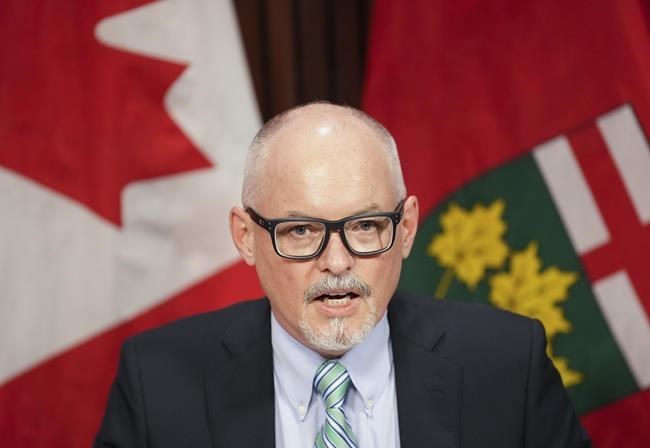TORONTO — Ontario is expected to make funding decisions for a long COVID strategy in the near future, the province's top doctor says, as health officials work to create standard definitions and treatment protocols.
Hospitals have been submitting proposals to Ontario Health, and now the province is working to provide guidance to primary care professionals on how to care for patients with long COVID symptoms, Chief Medical Officer of Health Dr. Kieran Moore said.
"I've seen the proposals and I don't want to pre-empt any ministry announcements, but I think they're about to make some funding decisions in the near future," Moore said in a recent interview.
Ontario's recently disbanded science table called earlier this month for a proactive and comprehensive strategy to deal with long COVID, which it said is likely to impart a significant burden on the province's population and its health-care system.
The group of scientific advisers said the condition was defined as symptoms persisting for at least four or 12 weeks after a COVID-19 infection. The prevalence of long COVID in the population may be anywhere from two to 54 per cent, depending on how the condition is defined, the science table said.
Moore said defining and treating long COVID is no easy task.
"We're trying to create a standardization of how to define what long COVID is, what would be the major symptoms, whether they're neurologic, cardiac, or respiratory that we'd like to have treatment protocols for," he said.
It's also important to understand what additional resources could help people with long COVID, such as rehabilitation, occupational health treatment and physiotherapy, he said.
"As well, we want to understand what laboratory investigations would be necessary to help with the diagnosis. What other diagnostic imaging would be important? What pulmonary function tests would be important?"
Ontario officials are looking at international literature, and Moore himself said he was just at a conference with the Center for Disease Control. That agency is also trying to define investigation and treatment pathways, he said.
"There haven't been a lot of randomized controlled trials to be able to give physicians guidance on what therapies work, in what instances," he said.
"So all of that work is evolving. We certainly want our researchers involved to ensure that we provide best guidance early on in the treatment pathways."
The Ministry of Health said earlier this month in response to the science table brief that it is reviewing the findings, but did not answer a question about whether or not the province has a plan for the condition.
This report by The Canadian Press was first published Sept. 18, 2022.
Allison Jones, The Canadian Press

